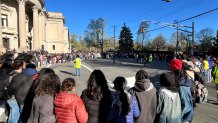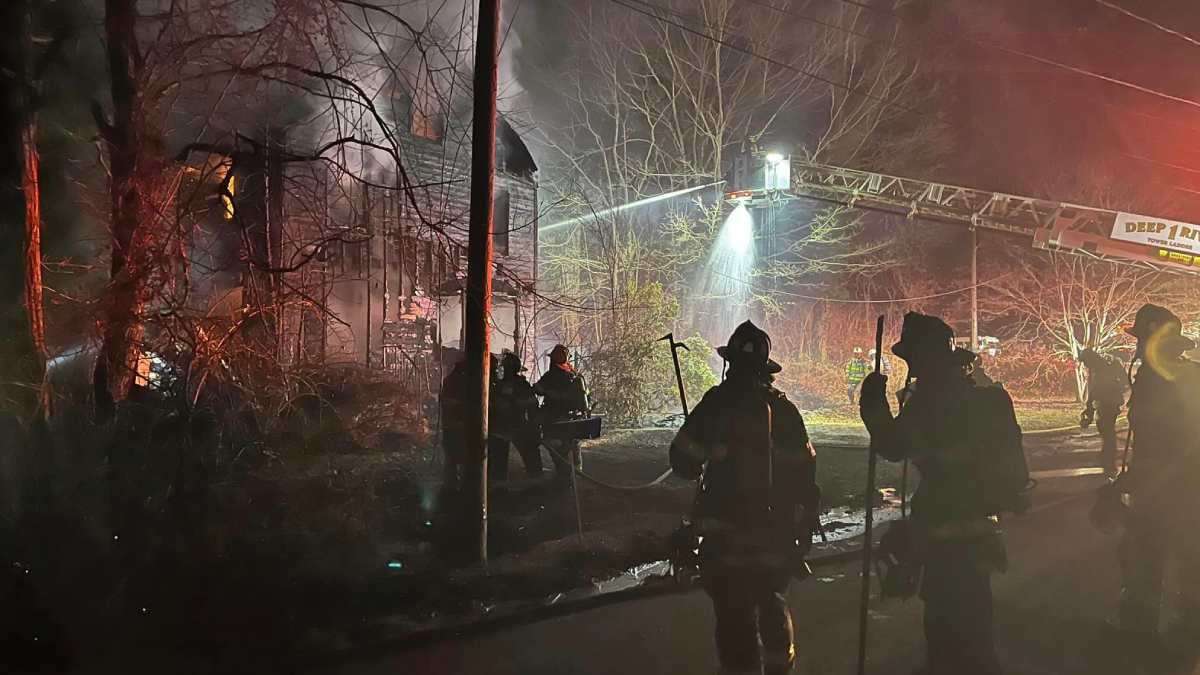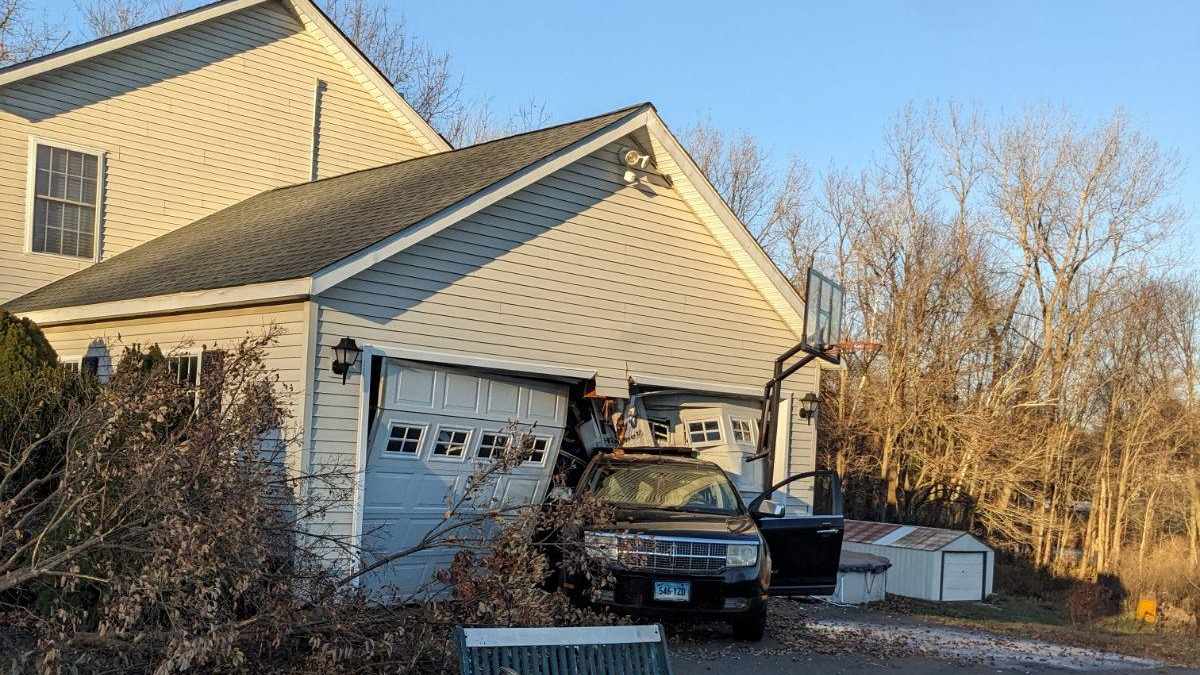Sixty people were arrested during a protest in support of Palestinians in Gaza at Yale University in New Haven on Monday.
The protest started last week and went through the weekend into Monday.
Some students camped out in tents and said they were awoken around 6:40 a.m. as Yale police surrounded them and demanded that they leave or be arrested.
Yale said protesters advocating for Yale's divestment from military weapons manufacturers converged on Beinecke Plaza. The protests grew to several hundred people, including students as well as people with no affiliation to Yale, according to a university spokesperson.
Get top local stories in Connecticut delivered to you every morning. Sign up for NBC Connecticut's News Headlines newsletter.
Yale students said they have been asking the university for months to disclose their investments and divest from weapons manufacturing in the war between Israel and Hamas and decided to protest when there was no response.
Early Monday morning, Yale asked protesters to leave and remove their belongings.
The protesters were told to show identification and while some left, others did not comply with multiple requests, according to Yale.
Sixty people that refused to leave were given summons charging them with criminal trespass in the first degree, which is a misdemeanor. Police said 47 of those arrests were Yale students.
The school said students who were arrested will also be referred for disciplinary action that includes things such as reprimand, probation or suspension.
A group of about 200 protesters returned to the area around 8 a.m. and blocked the busy intersection of Grove Street and College Street.
Video from the scene showed several people chanting "Free Palestine" and "We will not stop, we will not rest" and marching with signs that say “Free Palestine,” “Up With Liberation,” as well as other signs.
"The university made the decision to arrest those individuals who would not leave the Plaza with the safety and security of the entire Yale community in mind and to allow access to university facilities by all members of our community," the school said.

Protesters remained in the intersection until about 5 p.m. when New Haven police asked them to move. It was then that the protesters slowly cleared the intersection and moved their demonstration on campus.
According to Yale, the university talked with student protesters for several hours on Sunday and offered them a chance to meet with trustees. The school also reportedly told the protesters that if they left the plaza by the end of the weekend, they would avoid arrest. The protesters didn't leave the plaza and the protest continued on Monday.
Yale President Peter Salovey said the university became aware of some harmful acts and threatening language being used against people near the protest sites. This involved both students and non-students.
"We will not tolerate such behavior nor any open violation of Yale policies that interrupts academic and campus operations," Salovey said.
New Haven Mayor Justin Elicker issued a statement about the protest and what he calls a "successful de-escalation" by the police department.
“People have a first amendment right to free speech and to protest, and New Haven has a long history of supporting people’s ability to peacefully express their views. However, it’s also important that protests are conducted in a safe and orderly manner – and, in this situation, that Yale University students protest in a manner and place that is also respectful of New Haven residents.
Grove Street and College Street is one of New Haven’s busiest intersections, and it was important to have the area open and cleared in time for New Haveners’ evening rush hour commute and for first responders to be able to utilize those key corridors in responding to 9-1-1 emergencies across the city. I appreciate that the protest remained peaceful throughout the day and that the intersection was cleared prior to the evening commute voluntarily without incident or arrest.
I want to commend Chief Jacobson and the New Haven Police Department for exercising the highest degree of professionalism in their engagement with the Yale community, for ensuring that all protestors were able to demonstrate peacefully and safely, and for successfully working with student organizers to de-escalate the situation and ensuring a peaceful and orderly reopening of these streets to the public.”
Over the weekend, Yale President Peter Salovey released a statement saying in part: "Yale does not tolerate actions, including remarks, that threaten, harass, or intimidate members of the university’s Jewish, Muslim, and other communities." He also said the university will not tolerate behavior that interferes with university operations.
The Slifka Center - Jewish Life At Yale released a statement about the ongoing protests on Monday:
"The last week has been more difficult for Jewish students than any week at Yale in recent memory for members of Yale and New Haven’s Jewish communities. We respect the rights of all to express their views, but this week the campus environment crossed the line into open antisemitism," the statement read. "We call on the entire campus community to return to our normal ways: listening, respecting, and learning from each other as a core methodology for making the world better."



